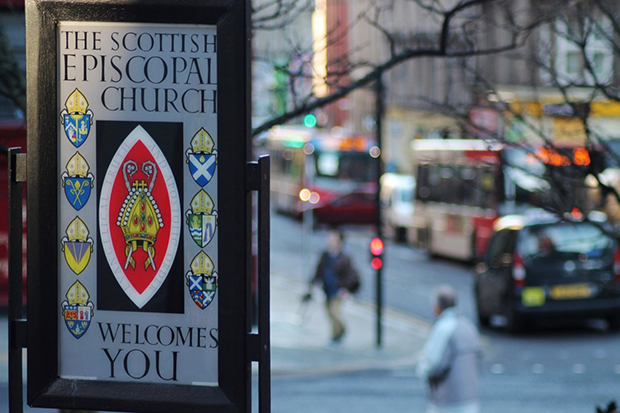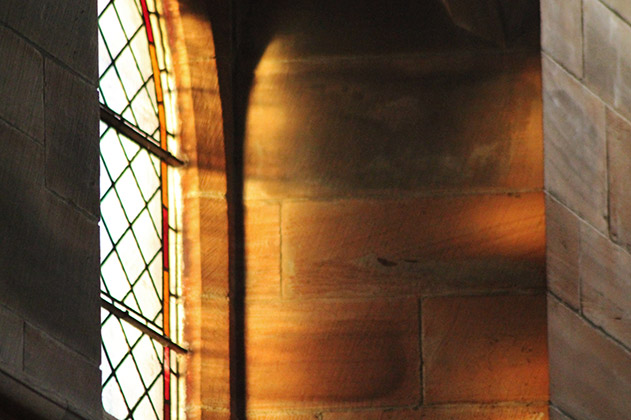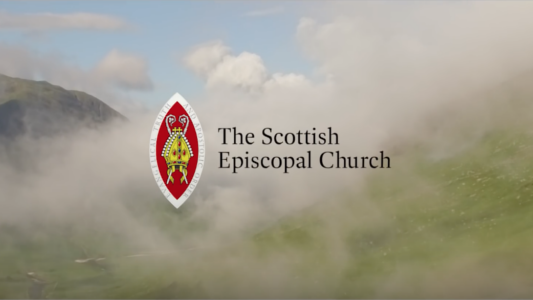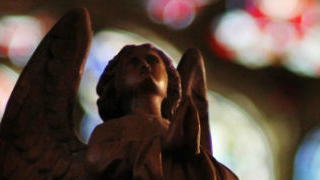Following Morning Prayer, the second day of General Synod 2014 started with a report on the work of the Committee for the Protection of Children and Vulnerable Adults by its Convener Mr Hugh Donald who reported that the Committee was overseeing a programme of safe-guarding training across the Church.
The Most Rev David Chillingworth then introduced the Mission and Ministry Board session by saying “We have travelled a long way in developing the Whole Church Mission and Ministry Policy – and that movement has now become a part of far greater changes in the establishment of the Scottish Episcopal Institute. Later in our Synod, when we discuss the proposals for canonical change you will see that the Mission and Ministry Board will now become the Mission Board and will be able to focus exclusively on issues of Mission.”
He then highlighted that the Mission and Ministry Board has restated the central idea that primacy of Mission in the life of the Scottish Episcopal Church is understood to be in the dioceses with diocesan bishops as Leaders of Mission, and said “That is not an aspiration. That is what has been happening. So we have to let go of the idea that policy is primarily made at the centre – radiating out like spokes of a wheel. We have to work out how we achieve coherence – how we avoid becoming seven churches – how we share, spread and cross-fertilise best practice across our Church.”
The Rev Fay Lamont, Convener of the Home Mission Committee then shared information about the networks that are being established which will support inter-diocesan collaboration and introduced various people who spoke about the aspects of the work they are involved in within such networks.
The Rt Rev Kevin Pearson, Bishop of Argyll & The Isles then introduced the session on the TISEC (Theological Institute of the Scottish Episcopal Church) review working party and Ministerial Formation and Future Governance Structures and Financial Implications – Synod then met in groups to discuss the following questions:
What qualities do you hope to see in your clergy?
Should ordination training be purely academic or practical as well?
What skills do clergy need in today’s church and society?
What is the best way of equipping those training for ministry to become effective ministers and leaders?
The morning of day two of General Synod finished with a presentation on the Good Society Project by the Rev Canon Bob Fyffe, General Secretary, Churches Together in Britain and Ireland (CTBI). Synod agreed to commend the Good Society report produced by CTBI as they consider Mission in their local communities.
The afternoon started with The Rt Rev Dr Nigel Peyton introducing the Mission and Ministry Board’s session on Same-Sex Relationships Discussion Process. Following a facilitated discussion by Hugh Donald of a Place for Hope initiative with four Synod members who had been participants at the Cascade Conversation event held in Pitlochry in April , Synod met in groups to discuss some of the thoughts shared in the discussion and to consider two questions ‘What has shaped your views about same-sex relationships over the years?‘ and ‘What considerations should the Scottish Episcopal Church take into account when exploring whether to incorporate same-sex marriage into its life?‘.
The Most Rev David Chillingworth brought this session to a close. and said “What churches should model to the world is not patterns of conflict but patterns in which we move forward together in relationship even when we do not agree. In other words, I am uncomfortable with mixed economies if they actually mean separate economies. As I said when I spoke in the Church of Scotland Assembly recently , I am happy with diversity but not happy with diversity without engagement. So if our church is to move on these issues, I hope that those who find it difficult to agree will be an honoured and respected part of that movement. Such an aspiration is clearly illogical. But then as I began by saying yesterday we are not members of an institution but the disciples of Jesus Christ.” Bishop David’s full statement can be read here








